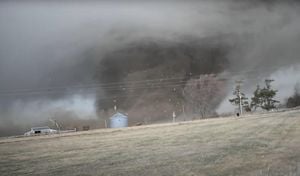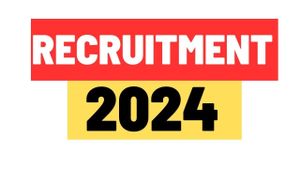Recent incidents involving bars across the UK have stirred community tensions, sparked police involvement, and even threatened local businesses, raising questions about safety, noise complaints, and the future of nightlife venues.
One contentious case arises from Clapham, where Thomas Pham, who moved next to the Mosquito Bar on Clapham High Street with his partner, alleges he has endured eight months of sleepless nights due to noise disturbances.
Pham, seeking to have the venue's licensing reviewed, brought his complaint before Lambeth council. At the meeting, solicitor Luke Elford, representing the bar, criticized the neighbor's approach, stating, "At no point did this applicant approach us and say: ‘Hey, there’s a problem. Can you help me fix it?’”
Elford offered to facilitate discussions during quieter hours, emphasizing the bar’s dependency on customers who frequent it after hours. The solicitor claimed limiting the bar's hours would be tantamount to its closure.
Meanwhile, Pham’s representative, James Rankin, countered by noting, "A limiter wasn’t a magic bullet to the noise problem," pointing out the challenges posed by late-night patrons transitioning from other establishments seeking their “last drink.” The licensing committee deferred the decision on the venue's operational conditions for another five days, leaving both the future of the bar and the neighborhood's peace uncertain.
Similarly, police concerns have thwarted another bar's attempts to expand its operations. Tonne Bar, located at St Martin's Square, Leicester, sought council approval to extend opening hours from 02:00 to 03:00 GMT and to host live music events.
Leicestershire Police raised objections, citing potential increases in "alcohol-related" troubles should the extension be allowed. Police licensing officer PC Jefferson Pritchard questioned the application’s vagueness and highlighted the existing problems with violence and disorder from nearby high concentration of bars remaining open late. He insisted on having security measures such as CCTV and incident logging if extensions were approved.
Owner Nicholas Ameer-Beg suggested the live music would primarily occur on bank holidays, but the police remain skeptical. Councillors are poised to rule on this matter, which highlights the delicate balance between nightlife enjoyment and community safety.
The challenges faced by bar owners are evident not only at Tonne Bar but also at Charlie’s Bar, which has become embroiled in its own struggle. Charlie Donovan, the bar's proprietor, expressed devastation after Melton Borough Council announced its decision to sell the property housing her business. The sale, motivated by financial concerns, leaves Donovan—and her loyal patrons—facing uncertain futures.
Despite her aspirations to continue operating, the local council has prioritized selling the venue, spelling trouble for Donovan, who lamented on social media: "I’m devastated by the choice of MBC but I am humbled by the amount of support we’ve had.” Her final days of operation are scheduled for Christmas Eve, Boxing Day, and New Year’s Eve—a bittersweet farewell to her growing customer base.
Meanwhile, the nightlife scene remains marred by public disturbances, as demonstrated by recent events at Buzzby’s American Dive Bar. Police responded to calls about disturbances, leading to the arrests of Philip Roughsedge and James Rennie, both charged with affray following the incident. The duo is set to face sentencing at Liverpool Crown Court, underscoring the potential criminal repercussions of late-night bar activities.
These cases paint a vivid picture of the risks and challenges facing bar owners and patrons alike across the UK. From licensing disputes to community tensions and criminal charges, the nightlife ecosystem finds itself at odds with the broader concerns of safety and well-being.
Future negotiations, regulatory reviews, and community relations will undoubtedly shape the bar scene. For now, establishments like Mosquito Bar, Tonne Bar, and Charlie’s Bar are under the spotlight, with their futures hanging precariously as local councils and police navigate the complex web of nightlife concerns.



